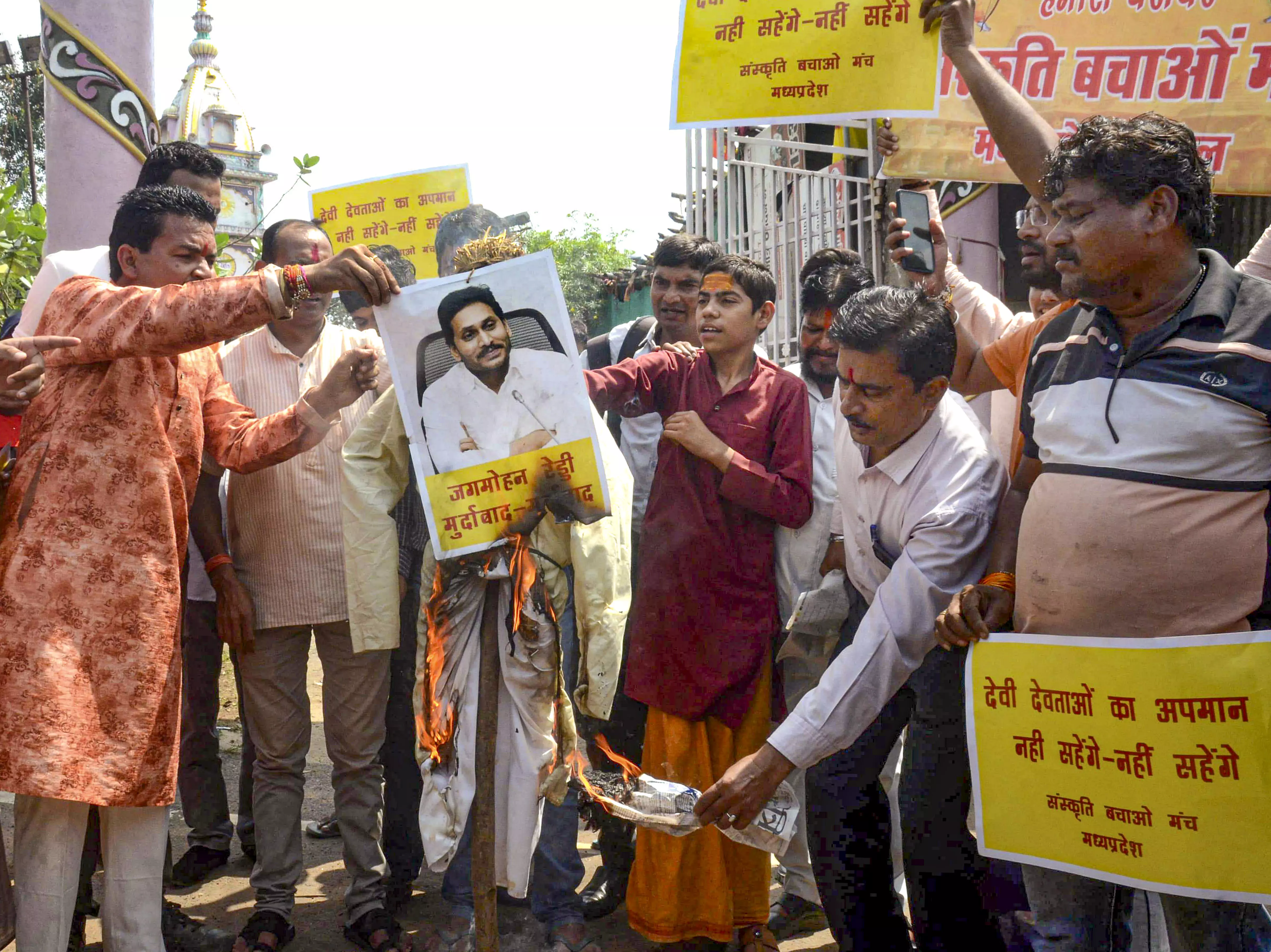
Before Tirupati laddus, tainted ghee rocked India in 1983 too; here’s what happened
A decade ago, a leading industrialist was jailed for selling ghee mixed with beef tallow in the name of pure vanaspati ghee in a case that dated back to 1983

The alleged detection of beef tallow and other foreign fats in the ghee used to prepare the famed laddus of the revered Tirupati temple in Andhra Pradesh has left many shocked, but this is not the first time such an incident has happened.
Exactly a decade ago, a leading industrialist was jailed for selling ghee mixed with beef tallow in the name of pure vanaspati ghee in a case that dated back to 1983. It was only in 2014 that a special CBI court sentenced Rajinder Mittal and three others to four years’ imprisonment after they were acquitted by a lower court. Apart from jail, Mittal was also slapped with a fine of Rs 18,000.
Mittal was the chairman of Mittal Group of Companies, which had multiple interests. The other three were Subhash Chand, his brother Tirlok Chand, both from Haryana, and Harbinder Singh of Amritsar. There were 11 other accused, too, but they died during the prolonged legal proceedings.
What happened in 1983?
That infamous case exploded in 1983, triggering nationwide outrage. The case had even rocked the Parliament at that time.
It had all started with beef tallow being found in the tanks of Mittal Industries, then headed by Dwarka Dass Mittal. The Mittal Group owned Bathinda Chemicals Limited and Pioneer Industries, along with other business interests. The group manufactured vegetable oil and soap material.
As the residents of Bathinda raised a hue and cry, two food inspectors had taken samples of beef tallow from Bathinda Chemicals. After that, two complaints were lodged against Dwarka Dass, his wife Ved Kumari, and sons Rajinder and Vinod under the Prevention of Food Adulteration Act.
How case went to CBI
After four years of investigation and trial, a lower court discharged the accused in 1987 based on the argument that food inspectors’ complaint could not be taken cognisance of, as they did not have the authorisation required in this case.
The government appealed against the order and handed over the case to the CBI that same year.
CBI’s charges
To put it in a nutshell, here’s what the agency found: Dwarka Dass, Rajinder, and a co-accused named Harcharan Das bought beef tallow from General Food, Indore, and Jain Shudh Vanaspati, New Delhi in May-June 1983.
They processed the inedible beef tallow in their factory in Bathinda, Punjab, and then supplied tins of the processed tallow, still inedible, to the other accused, Harbinder Singh, Lakhbir Singh, Rattan Singh of Amritsar and Jogi Ram, Tarlok Chand, and Subhash Chand of Narwana.
This inedible beef tallow was then sold to Narinder Kumar — who became a prosecution witness — and others as edible vanaspati ghee under a fake brand name. The CBI pleaded in the special court in 2014 that the accused had sold 100 containers of inedible beef tallow as ghee.
The Jains of Delhi
Another business group that had been embroiled in this controversy was the Delhi-based Jain Shudh Vanaspati Pvt Ltd with a turnover of Rs 32 crore at that time. Its then managing director, Vinod Kumar Jain, was 36 at that time.
The Jain family together owned an empire of over a dozen concerns with a total turnover of more than Rs 100 crore at that time, with interests ranging from beer to readymade garments. After an angry parliamentary debate on the import of beef tallow worth Rs 3.4 crore by the Jains, the CBI had conducted massive raids on over 20 complexes owned by the group.
Vinod Jain was arrested under the stringent National Security Act and detained in Tihar jail for 29 days. However, the Delhi High Court later ruled that there was not sufficient evidence to prove that Jain was a major accomplice of the Mittals in using beef tallow to manufacture “vanaspati”.
Anyhow, after a prolonged trial crossing 30 years, the special CBI court in 2014 held Mittal and the others mentioned above guilty of cheating, conspiracy, destruction of evidence, and food adulteration.

